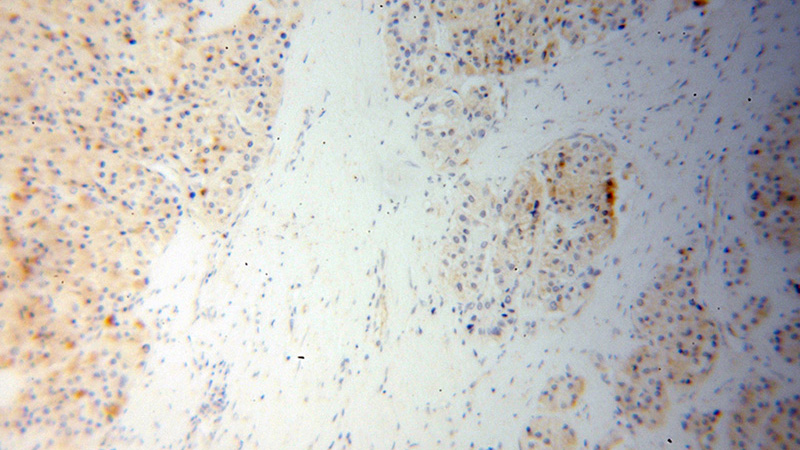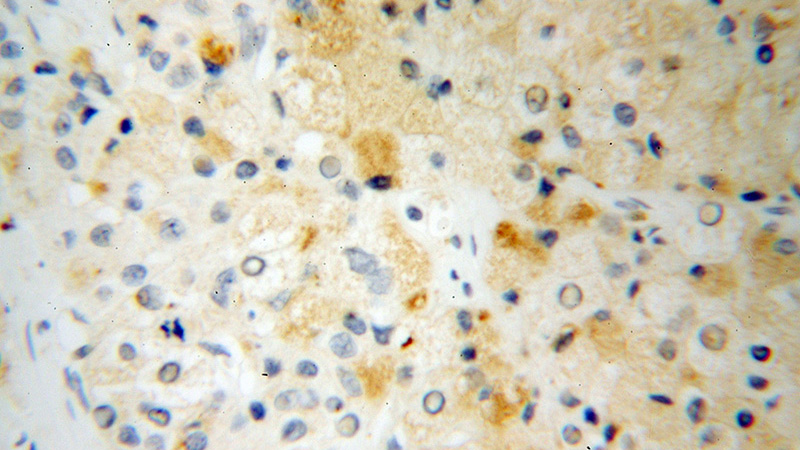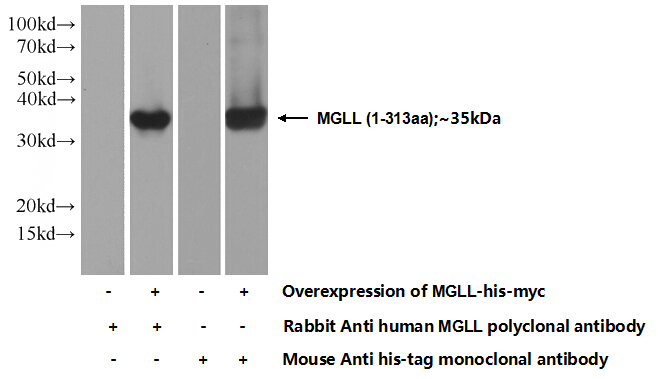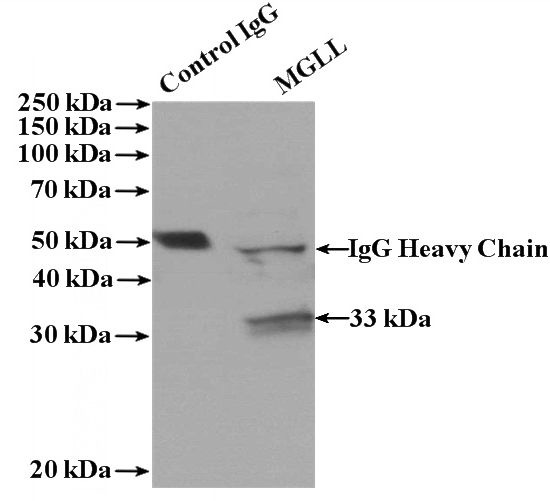-
Product Name
MGLL antibody
- Documents
-
Description
MGLL Rabbit Polyclonal antibody. Positive IP detected in mouse liver tissue. Positive WB detected in Transfected HEK-293 cells. Positive IHC detected in human liver cancer tissue.
-
Tested applications
ELISA, IHC, WB, IP
-
Species reactivity
Human,Mouse,Rat; other species not tested.
-
Alternative names
HU K5 antibody; HUK5 antibody; Lysophospholipase homolog antibody; Lysophospholipase like antibody; MGL antibody; MGLL antibody; Monoglyceride lipase antibody
- Immunogen
-
Isotype
Rabbit IgG
-
Preparation
This antibody was obtained by immunization of MGLL recombinant protein (Accession Number: NM_007283). Purification method: Antigen affinity purified.
-
Clonality
Polyclonal
-
Formulation
PBS with 0.02% sodium azide and 50% glycerol pH 7.3.
-
Storage instructions
Store at -20℃. DO NOT ALIQUOT
-
Applications
Recommended Dilution:
WB: 1:500-1:5000
IP: 1:200-1:1000
IHC: 1:20-1:200
-
Validations

Immunohistochemical of paraffin-embedded human liver cancer using Catalog No:112599(MGLL antibody) at dilution of 1:100 (under 10x lens)

Immunohistochemical of paraffin-embedded human liver cancer using Catalog No:112599(MGLL antibody) at dilution of 1:100 (under 40x lens)

Transfected HEK-293 cells were subjected to SDS PAGE followed by western blot with Catalog No:112599(MGLL Antibody) at dilution of 1:1000

IP Result of anti-MGLL (IP:Catalog No:112599, 4ug; Detection:Catalog No:112599 1:300) with mouse liver tissue lysate 4000ug.
-
Background
MGLL(monoglyceride lipase) is also named as MAGL, HU-K5 and belongs to the monoacylglycerol lipase family. It converts monoacylglycerides to free fatty acids and glycerol and functions together with hormone-sensitive lipase (HSL) in the mobilization of fatty acids from the triglyceride stores of adipocytes. MGL prootein is ubiquitously expressed in kidney, spleen, heart, liver, stomach, brain, lung, adrenal gland, adipose tissue and in brain,there are two bands of 33 kDa and 35 kDa can be detected. The single protein species expressed in muscle is larger(around 40 kDa).(PMID:11470505). This protein can exsit as a homodimer(PMID:19957260).
Related Products / Services
Please note: All products are "FOR RESEARCH USE ONLY AND ARE NOT INTENDED FOR DIAGNOSTIC OR THERAPEUTIC USE"
